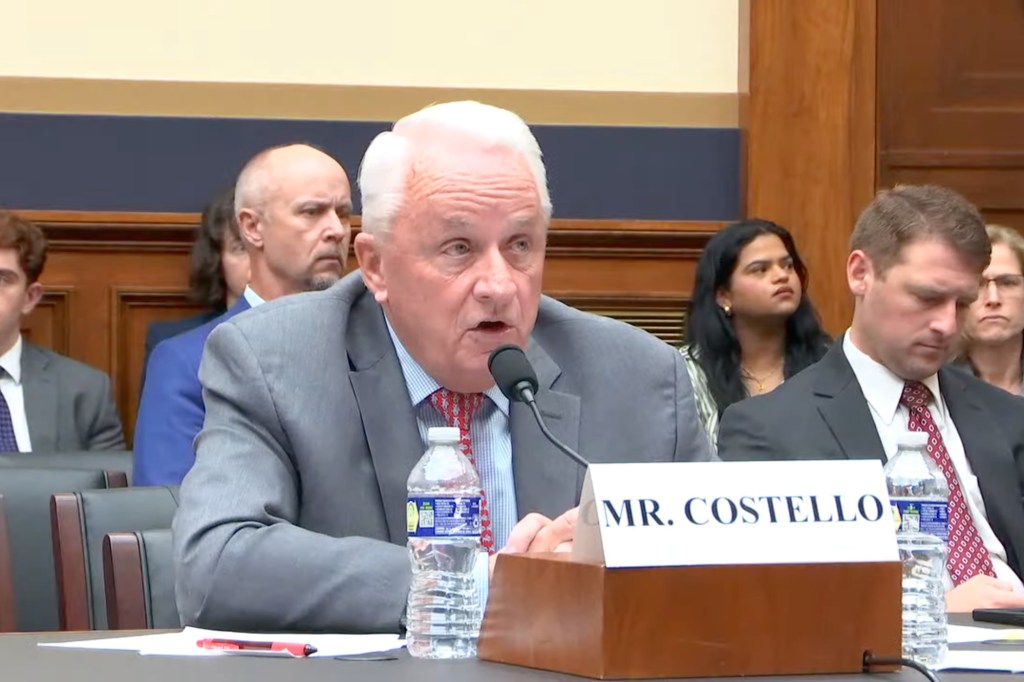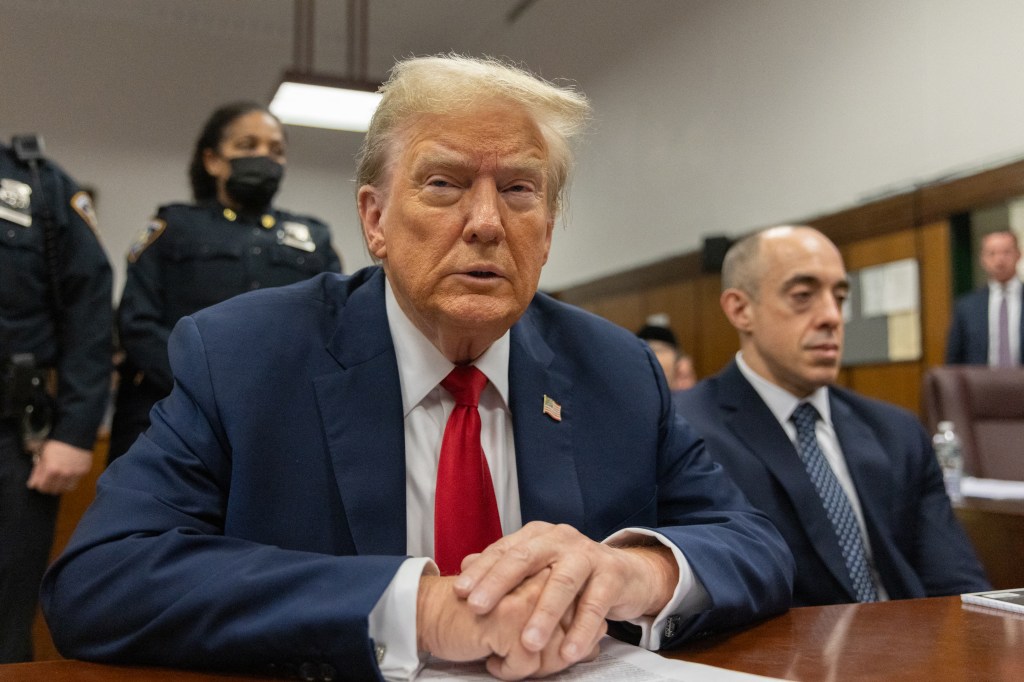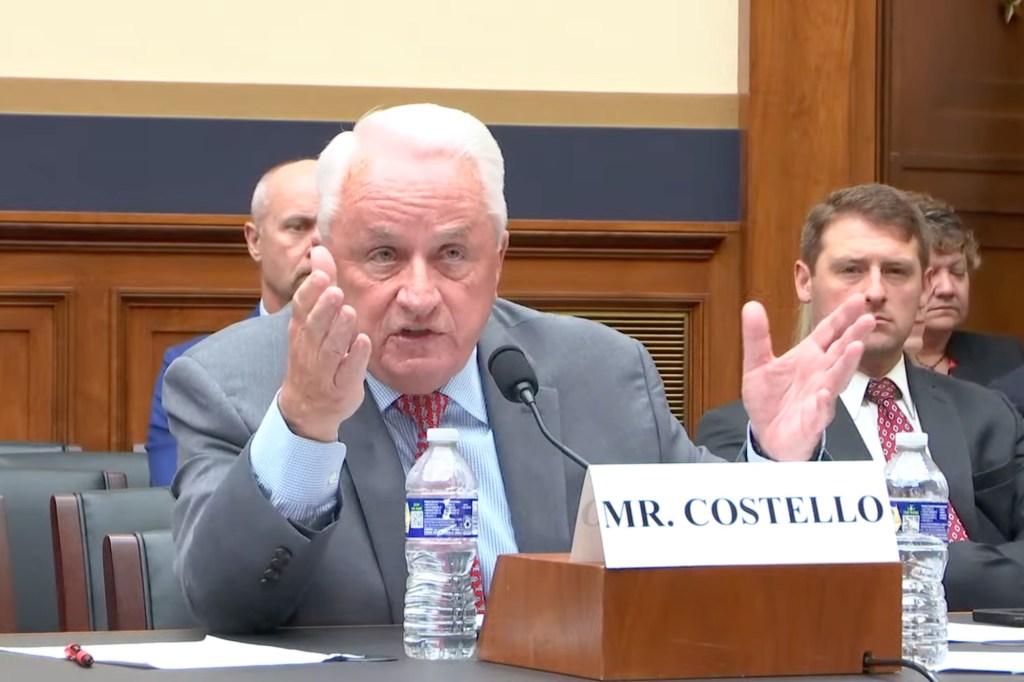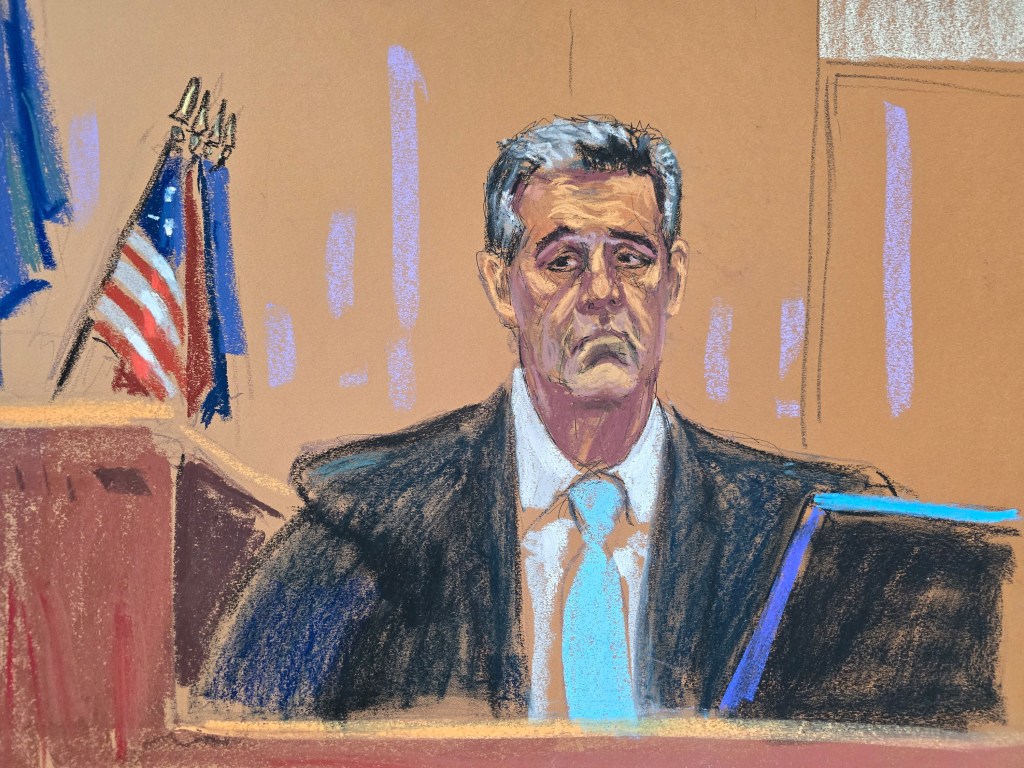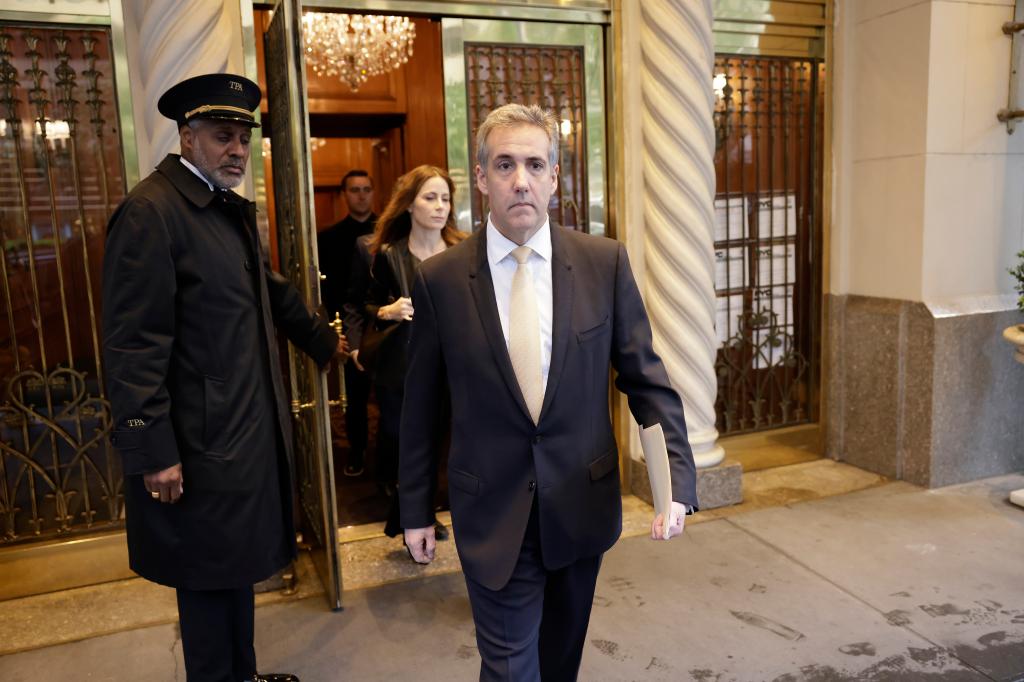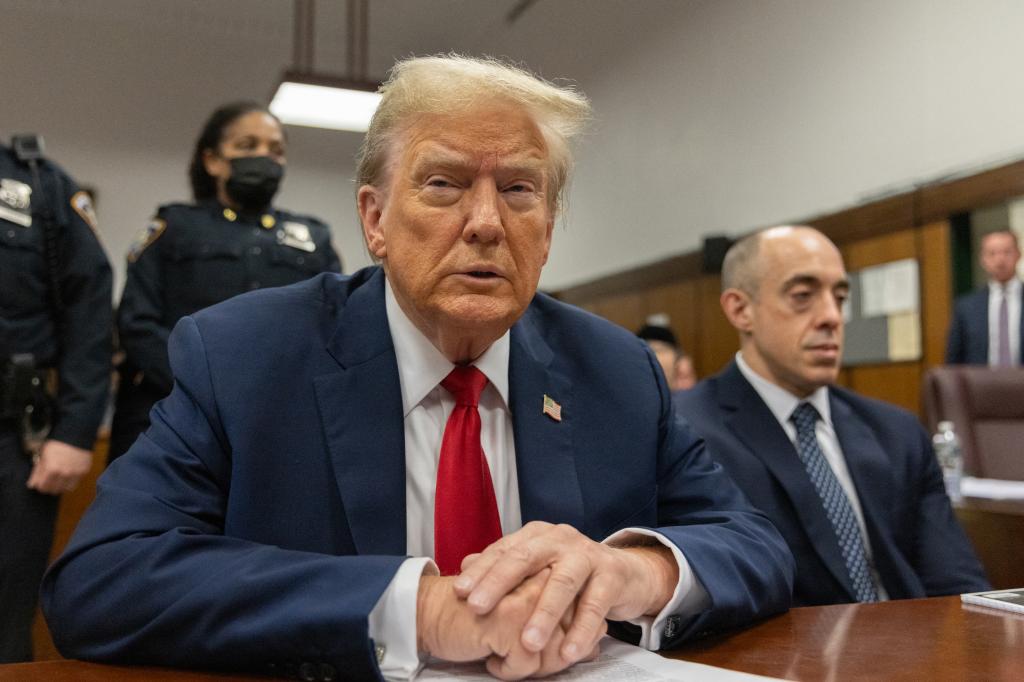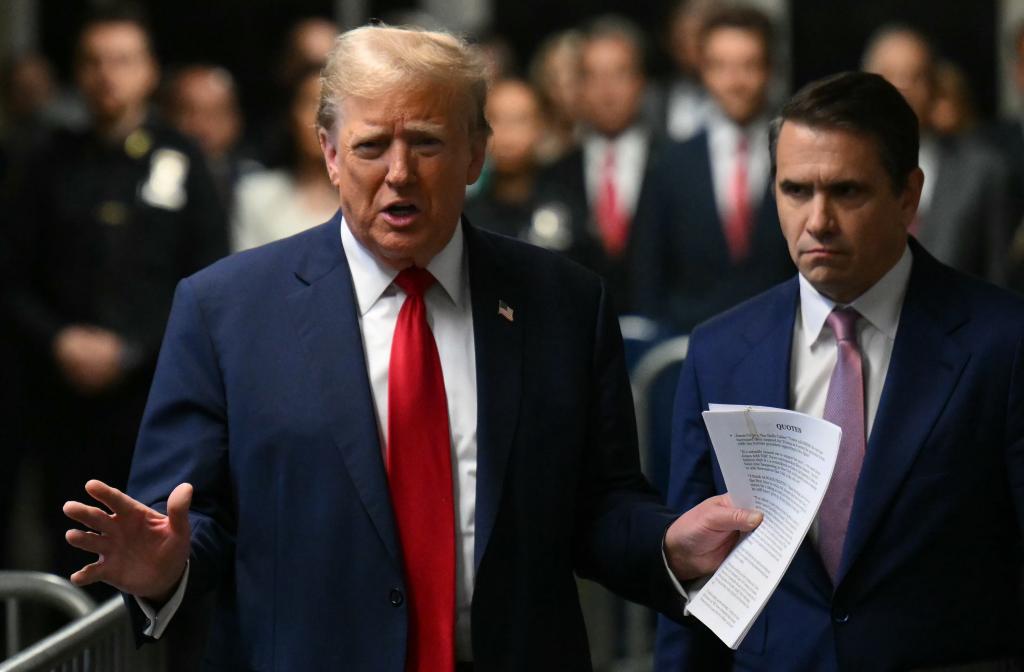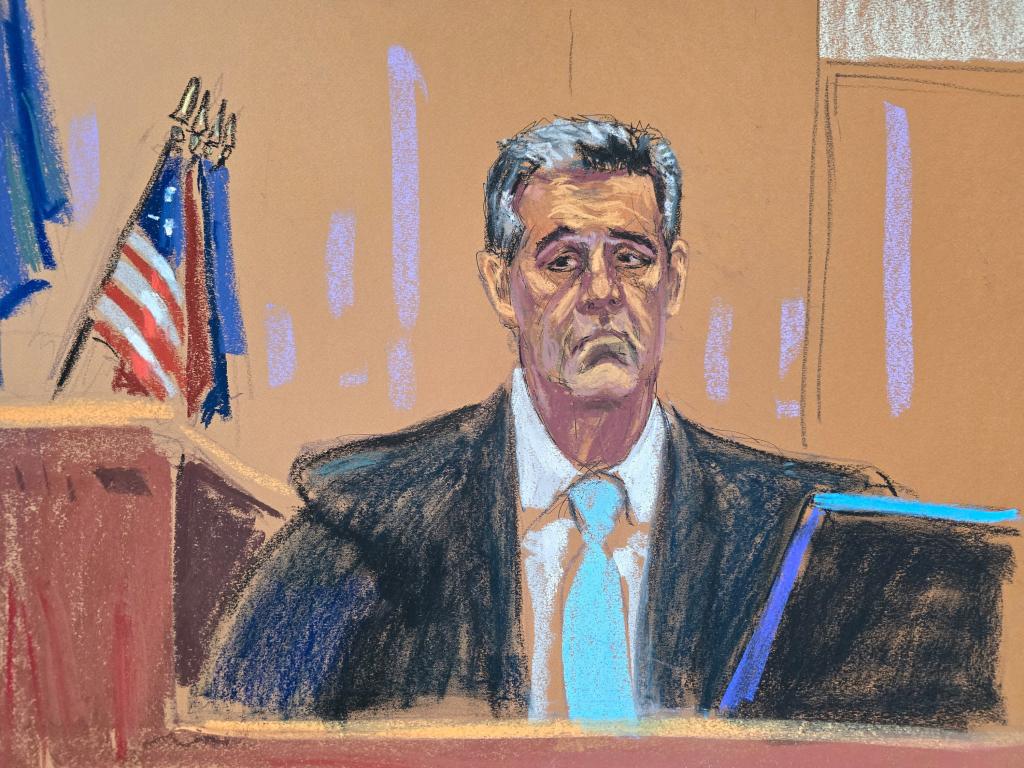Michael Cohen’s ex-lawyer tells Congress Trump ‘fixer’ lied about ‘hush money’ — and that former prez knew nothing
An attorney who formerly represented Donald Trump’s onetime personal lawyer Michael Cohen told House lawmakers Wednesday that Cohen lied about “hush money” payments to porn star Stormy Daniels — having previously insisted the 45th president was not involved in the transaction.
Robert Costello, a former Manhattan federal prosecutor, revealed to the House Select Subcommittee on the Weaponization of the Federal Government that key points of Cohen’s recent testimony against Trump in Manhattan Criminal Court were false.
Federal prosecutors charged Cohen in 2018 with violating federal campaign finance law by making the $130,000 payment to Daniels, and he later was sentenced to three years in prison for that crime, as well as tax evasion and making false statements to a bank.
The legal jeopardy pushed Cohen to the brink of suicide, but Costello told committee members his then-client insisted at least 10 times: “I swear to God, Bob, I don’t have anything on Donald Trump.”
Cohen later waived his attorney-client privilege, allowing Costello to share the damning details of their talks.
Costello emphasized that prosecutors were asking for “truthful information that would implicate Donald Trump” to “get [Cohen] out his legal trouble by the end of the week — if he cooperated against Donald Trump.”
Cohen testified earlier this week as a witness for Manhattan District Attorney Alvin Bragg’s prosecution of Trump, 77, who faces 34 criminal counts of falsifying business records to conceal his reimbursement of Cohen for the Daniels payment.
Those payments occurred in 2017, but prosecutors have argued the case constituted a “criminal scheme to corrupt the 2016 election.”
The former president has pleaded not guilty to all charges.
Costello told subcommittee members he had convinced Cohen to cooperate after his client had been “seriously contemplating jumping off” the roof of the Loews Regency Hotel on Park Avenue, though Costello claimed Cohen expressed skepticism about the “hush money” allegations from the start.
Cohen later told him he had concocted the “catch and kill” scheme to hide Daniels’ story that she had engaged in an affair years earlier with the married then-candidate, which “would be embarrassing for Trump, and especially [wife] Melania [Trump], so he decided to take care of it himself.”
Costello added that his former client’s “motivation” for the scheme later “became obvious” when he learned that Cohen expected to be named Trump’s White House chief of staff — or even attorney general.
“Cohen then explained that, for that reason, he negotiated the sum of $130,000 in exchange for the [non-disclosure agreement with Daniels],” Costello said. “When asked if Trump had any knowledge of this, Cohen told me no. When asked whether Cohen got the $130,000 from Trump or any Trump entity or friend, Cohen again said no.”
Cohen testified in court this week that he took out a home equity line of credit loan to buy Daniels’ silence — and keep his own wife in the dark about the amount.
But the disgraced former attorney added under direct examination that Trump Organization CFO Allen Weisselberg agreed to reimburse him $420,000, and Trump had been made aware of the money.
Cohen also denied that he informed Costello — who testified before the Manhattan grand jury that indicted Trump — about the former president’s knowledge of the payment.
Cohen testified this week he kept that information from Costello out of fear that the lawyer would “immediately run back” to another of his then-clients — Rudy Giuliani, the former mayor of New York City and personal lawyer to Trump — to share that information.
Follow The Post’s live blog for the latest updates on Donald Trump’s “hush money” trial
Costello said Wednesday the whole of Cohen’s testimony constituted a “revenge tour” against Trump after Cohen lost his law license and spent a year in federal prison before serving out the rest of his sentence in home confinement during the COVID-19 pandemic.
“Michael Cohen is simply not a credible man,” Costello concluded.
In an appearance on Fox News’ “America’s Newsroom” Thursday morning, Costello said that he was later interviewed by federal prosecutors and FBI agents after waiving his attorney-client privilege with Cohen.
“At the end of that interview, everybody was laughing because I showed how ludicrous the accusation was,” Costello recalled. “They didn’t indict Donald Trump for anything, and they never used Michael Cohen.”
“That’s a lesson the Manhattan DA’s office should’ve learned — but they haven’t learned it yet,” he added.
Costello also said Bragg’s office had been “trying to shut me down” during his grand jury testimony last year after he shared with them exculpatory material for the case, including between 200 and 300 emails and text messages with Cohen.
But prosecutors “cherry-picked” that exculpatory material for “two to three” pieces of evidence, he added, describing the rest of the files as “hearsay.”
“You know, and I know, but the grand jurors don’t know, that business records are an exception to the hearsay rule,” Costello said he explained to them, while adding that even hearsay is admissible in grand jury proceedings.








